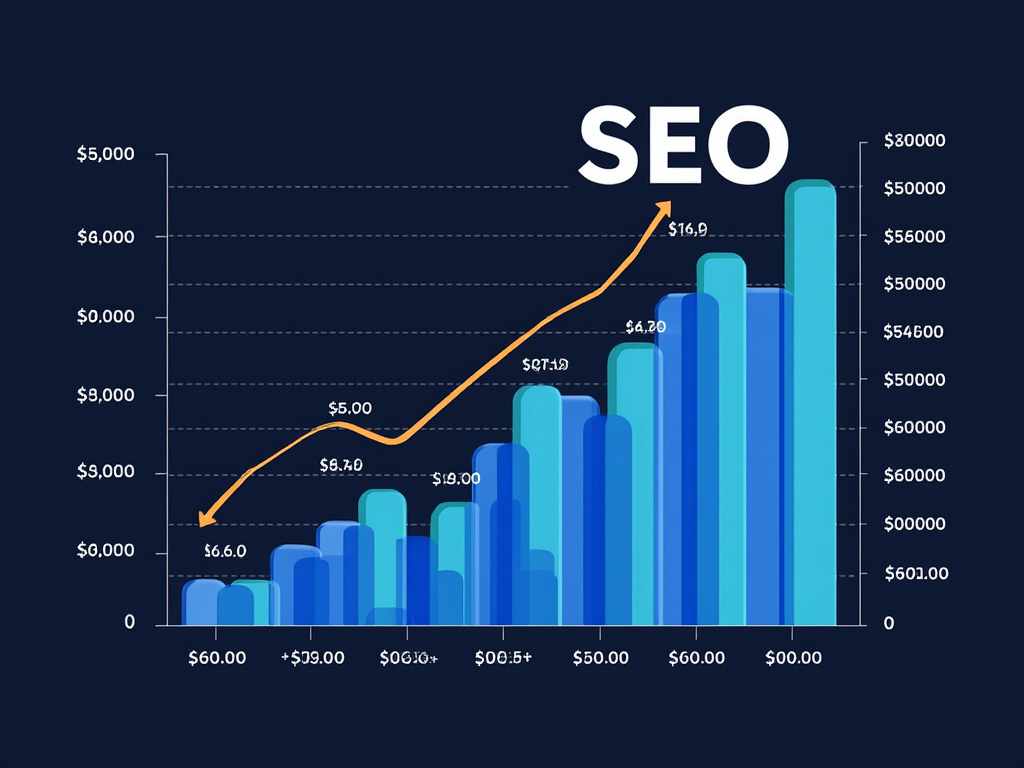Let’s talk about AI and SEO—the two buzzwords in digital marketing that, when paired together, can be pretty powerful.
I know, SEO can sometimes feel like a maze, and if you’re a website owner or blogger, the constant algorithm changes can make it hard to keep up.
So how do AI agents fit into all this, and how can they help boost your traffic?
In this article, I’ll break down how AI agents are revolutionizing SEO, the benefits they bring, and specific ways you can use them to attract more visitors to your site.
Whether you’re a seasoned pro or just starting out, there’s something in here for you. Let’s get started!
What Are AI Agents and Why Should You Care About Them in SEO?
Let’s kick it off with some basics. When I say “AI agents,” I’m talking about software powered by artificial intelligence that performs specific tasks autonomously.
In the world of SEO, these agents can do things like analyze your website’s performance, track user behavior, and even write and optimize content for you.
Why should you care? Well, AI agents are fast. They can process tons of data in seconds, pinpoint what’s working (and what’s not), and give you actionable insights.
They make SEO less about guesswork and more about data-driven decisions. Imagine having an assistant who never tires out, constantly scours the internet for trends, and optimizes your content in real-time—that’s basically what an AI agent can do.
Curious about how AI agents can transform your business strategy?
Check out our in-depth guide on AI agents in action!
Benefits of Using AI Agents for SEO
AI agents come with a bunch of benefits that can directly impact your SEO performance:
- Speed and Efficiency: These tools can analyze data in minutes, which could take humans hours (or even days).
- Accuracy: With machine learning, AI agents become better over time, so your insights become more refined.
- Cost-Effectiveness: While some tools have a price tag, they often cost less than hiring a dedicated SEO team.
- Real-Time Updates: They monitor and respond to SEO changes instantly, helping you stay ahead of the curve.
With AI agents, your SEO strategy can become more agile and proactive. But let’s get into the specifics: how can you use AI agents to increase your website traffic?
Keyword Research and Optimization with AI

Finding the right keywords has always been one of the biggest challenges in SEO. AI agents are making it a lot easier.
Traditionally, we’d use keyword tools, analyze trends, check search volume, and tweak content based on what we think will work. With AI, this process becomes supercharged.
Keyword Discovery
AI tools like Ahrefs, SEMrush, and Surfer SEO now incorporate machine learning to identify trending keywords in real-time.
These tools scan the web to see what keywords are currently popular within your niche and can even predict future trends based on search patterns.
Tip: Use an AI agent to keep a running list of keywords that are picking up steam. Many platforms let you set alerts for specific keywords, so you know when it’s time to capitalize on a hot topic.
Latent Semantic Indexing (LSI) and Contextual Relevance
AI agents don’t just identify high-volume keywords; they also pick up related phrases and synonyms that help Google understand the context of your content.
LSI keywords help your content stay relevant without relying on outdated practices like keyword stuffing. Plus, they make your content feel more natural to the reader.
Actionable Step: Sprinkle LSI keywords throughout your post. Tools like Clearscope or MarketMuse use AI to recommend secondary keywords based on relevance and user intent.
Content Optimization with NLP
Natural language processing (NLP) is one of the AI advancements changing SEO.
AI-powered SEO agents can analyze existing content on top-ranking pages, identify patterns, and suggest improvements to your own.
Imagine your blog post being reviewed by an AI that understands Google’s language preferences—that’s what NLP can do for you.
Example: Surfer SEO offers an “Audit” feature where it compares your content to the top pages on Google, providing recommendations on everything from word count to header usage.
Check out our AI in content creation article for more.
Enhancing User Experience (UX) and Site Performance
If there’s one thing I’ve learned about SEO, it’s that user experience (UX) is huge. Google cares about how visitors interact with your site—whether they’re staying, clicking, or bouncing.
AI-Powered User Behavior Analysis
AI agents use machine learning to analyze how users navigate your site.
They’ll look at metrics like average session duration, bounce rate, and click-through rate, providing insights on what might be pushing users away or keeping them engaged.
Quick Tip: Many AI platforms, such as Hotjar, record user sessions. Watch how people interact with your content, which can reveal areas for improvement (like adjusting a CTA or reorganizing your layout).
Want to uncover more SEO tips to drive traffic?
Dive into our latest SEO article for practical, game-changing insights!
Optimizing for Voice Search
Here’s something you don’t want to ignore: voice search. It’s on the rise, and people are using devices like Alexa, Google Assistant, and Siri to find content.
AI agents help you optimize for voice by identifying the natural language patterns people use in voice searches.
Actionable Advice: Start including conversational phrases and questions in your content. A tool like AnswerThePublic, powered by AI, shows you common questions and phrases users search for.
Mobile SEO and Page Speed
AI agents can continuously monitor your site’s mobile performance and page load times—both are critical ranking factors. Tools like Google’s PageSpeed Insights are enhanced by AI to identify slow-loading elements and provide fixes.
Pro Tip: Run regular speed tests with AI tools like Pingdom or GTMetrix. Small fixes, like compressing images or minimizing JavaScript, can make a big difference in how Google sees your site.
Content Creation and Curation
Creating quality content can be exhausting, especially when you’re trying to post regularly. AI agents can now help generate content ideas, even entire posts, tailored to SEO best practices.
AI-Generated Content
Yes, you can use AI to actually write content. Tools like Jasper and Copy.ai produce SEO-optimized content in seconds. Just input a topic or keyword, and they generate outlines, headlines, and even full articles.
Heads up: AI-generated content still requires human editing. Think of it as a draft—it can get you started, but you’ll want to add personal touches.
Content Curation
Keeping your blog up-to-date doesn’t always mean writing fresh content from scratch.
AI agents can help with content curation, pulling relevant articles, news stories, and trends that you can use to update older posts or add value to current ones.
Platforms like Curata and Feedly offer AI-powered content recommendations tailored to your audience’s interests.
Quick Win: Set up a content curation feed for your niche. If you’re in tech, for example, AI-curated feeds can give you fresh angles and ideas to make your blog feel current and relevant.
SEO Reporting and Analytics

No SEO strategy is complete without some data analysis. With AI, reporting becomes more visual, actionable, and user-friendly.
AI-Driven SEO Reporting Tools
Many SEO platforms are integrating AI to make reporting more intuitive.
SEMrush, for instance, has an AI-driven feature that allows you to create personalized reports that focus on what really matters to you, such as organic traffic trends, ranking improvements, and competitor analysis.
Pro Tip: Schedule regular reports and review them. AI agents often identify small trends that could become big, and catching them early lets you capitalize on opportunities before competitors do.
Predictive Analytics
AI agents can even predict future performance based on historical data.
If your content typically performs well during certain seasons, predictive analytics will show you when to refresh or promote older posts. This is especially helpful for niche blogs or seasonal industries.
Example: Google Analytics has predictive metrics that estimate the likelihood of certain user actions (like conversions), helping you focus efforts on the most valuable content.
Building an AI-Enhanced SEO Strategy
So how do you put all this into practice? Here’s a simple, actionable SEO strategy you can start implementing with the help of AI agents:
- Set Clear SEO Goals: Decide on a few key goals—whether that’s increasing organic traffic by 20% or improving bounce rates by a specific percentage.
- Use AI for Keyword Research and Content Ideas: Tools like SEMrush or Ahrefs can help you find untapped keywords, while platforms like Jasper can draft content based on those keywords.
- Optimize Content for UX: Run user behavior tests regularly and adjust your layout based on insights.
- Track Results and Adjust: Set up automated reports with AI-driven insights, and make tweaks to your content or keywords based on performance data.
Final Thoughts
In the fast-moving world of SEO, AI agents are the trusty sidekicks we all need.
They help with everything from keyword research to real-time performance analysis, and they can give you insights that simply aren’t possible without machine learning.
Using these tools isn’t just about saving time; it’s about making SEO smarter, more responsive, and more effective.
So, if you’re looking to step up your SEO game, try an AI agent or two. Experiment, track your results, and let the data guide you. After all, in the world of SEO, adapting and evolving is the name of the game.
Happy optimizing!
